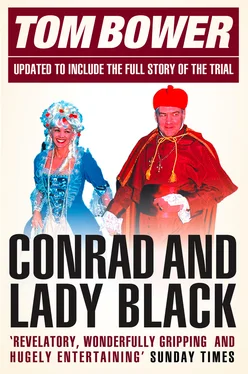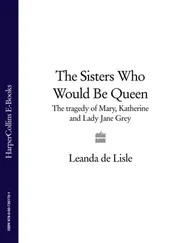Unknown to Amiel, in early 1956 her father had become severely troubled. Harold Amiel, the practice’s accountant, had been stealing money from clients and from his solicitors’ partnership. Exposure was imminent. Fearing disgrace and the anger of his younger brother Barry, he went on 19 April to his mother’s flat in Marylebone while she was on a winter cruise, and took an overdose of barbiturates. A verdict of suicide was declared by the coroner one week later. In their grief, the families decided not to tell Harold’s two daughters in Canada, partly because he rarely talked about them, and also because he had not mentioned them in his last will, signed the day before his death. Barbara’s cousins were told that Uncle Harold had died of his wartime wounds. Amiel’s sole memento of her father was a photograph of him dressed in a colonel’s uniform. Many years later she described her father swallowing the tablets while listening to Wagner’s Die Meistersinger von Nürnberg . 10 In contrast, Barry Amiel recalled that his brother was reading a good book and eating an apple before his death.
Considering her hardships over the previous six years, Barbara Amiel’s arrival at university had been achieved at a price. Emotionally she was unstable. To relieve her stress and tiredness she swallowed a dozen Codeine 222 tablets a day, and took antidepressants to help her sleep. The physical result was an undernourished, sultry young woman with deep black shadows under her eyes. Sprawled across the bed in her room in the students’ hall of residence were panda bears and other soft toys. On a shelf was the solitary photograph of her father in uniform. ‘Welcome to the Jewish Common Room,’ laughed fellow-student Larry Zolf as the thin Barbara entered the Junior Common Room. ‘The most beautiful fellow-travelling Marxist I have ever seen,’ was Zolf’s conclusion after a few conversations revealed her fascination with Stalin, ‘and certainly the most intelligent.’ Curious about her past, Zolf asked the shy girl about her family. ‘Oh, my father was very poor and unemployed,’ replied Amiel, ‘and we were kept afloat by a rich uncle.’ Other family members do not recall those circumstances.
Sitting regularly in the JCR, the centre of her social life, with her new best friend Ellie Tesher, Amiel confessed her need for security. ‘Who’s that?’ she asked when a handsome, dark-haired student walked in. ‘That’s Gary Smith,’ replied Tesher. ‘He lives in Forest Hill’ (an affluent area of Toronto). ‘I think I’ll marry him,’ said Amiel flatly.
Gary Smith, a gentle, quietly-spoken law student, was the son of Harry Smith, the owner of the once-famous Prince George Hotel in Toronto and a member of a well-known family. In 1958 Harry Smith had opened the luxurious Riviera Hotel in Havana, Cuba, in partnership with Meyer Lansky, the Mafia boss, who owned the hotel’s casino. Fidel Castro’s revolution one year later terminated their investment. In an attempt to recoup some of their money, Tony Bennett, Sammy Davis Jr and Sophie Tucker were booked to appear at the Prince George Hotel, and the income their performances generated was substantial. The downside was Harry Smith’s chronic and unsuccessful gambling in casinos across the USA. Nevertheless, to Barbara Amiel, the Smiths appeared a wealthy, stable Jewish family who might offer her salvation.
Amiel enjoyed Gary Smith’s adulation. Silently, he admired her skills in political argument – the legacy, she said, of those family debates in north London. As her self-confidence grew, she became the centre of attraction in student debates as a fiery supporter of neo-Marxism and Leon Trotsky. ‘You don’t know the difference between Trotsky and a hole in the ground,’ laughed Zolf. Once their relationship had become established, Smith was untroubled by Amiel’s frequent indifference towards him, even when she treated him like an imbecile. Gladly he satisfied her craving for cashmere sweaters, her enjoyment of expensive trips and, at the weekends, her desire to smoke pot and win at Monopoly. ‘Sex is good with Barbara,’ Smith confided, albeit that it invariably took place in the back of the car he borrowed from his parents – by no means an uncommon experience among their age group. Her thin waist and large, high breasts were breathtaking. ‘If anything,’ Smith murmured, ‘Barbara needs breast reduction, they’re so huge.’ Many years later, Conrad Black was to make the same type of comment publicly. Smith had never met such a sexually experienced woman who frequently took the initiative. His placid temperament could easily cope with her dramatic, even histrionic moods, but while Amiel was vitriolic in criticising others, she was vulnerable to even friendly mocking of herself. In those helpless moments he provided the support she needed, especially during the weeks when she consulted the college psychiatrist about her hallucinations and her growing addiction to Codeine. A doctor prescribed Elavil, an antidepressant. ‘The drug,’ she wrote, ‘was to be my undoing [and the cause of] my erratic emotional life … I never realised quite how drugged I was for those seven years.’ 11
Amiel’s erratic life had started long before the summer of 1962, but that year was a landmark. Isaac Barnett, her grandfather, died and bequeathed her £400. She flew to London with Gary Smith to collect the money and see her family. In the new, exciting environment, Amiel’s imagination let rip. Smith was under the mistaken impression that she had found her father’s corpse after he committed suicide, and she suggested that she had been brought up as a Marxist, mixing with the Seiferts and Sedleys, the rich Jewish Communist families who lived in mansions in Hampstead, although neither family could recall her presence in their homes, or her being invited to their frequent parties. She would later recollect that she was met at Heathrow by ‘my Maoist uncle’s chauffeur’, while Gary Smith recalls them taking a bus into the city and walking to a hotel. 12 The Amiels and the Buckmans recall trying their best to care for their niece whose innocence had, it seemed, been irretrievably lost. As a gesture of their consideration, her uncle Bernard Buckman suggested that she join the British delegation to that year’s World Youth Festival in Helsinki, a Soviet-sponsored summer camp for Communist supporters. Amiel bade farewell to Gary Smith and set off, passing through the newly-built Berlin Wall, to compare the theory of Communism discussed at university in Toronto with the reality.
Eighteen years later, Amiel would assert that the Helsinki experience had immediately and fundamentally changed her political opinions, although the student who returned to Canada still spoke as a Marxist. The noticeable difference was her change of personality. The shy trepidation had been replaced by a flaunting of her sexual attractions. With her family’s support, she did not need to work that summer. Instead she stayed with Florence Smith, Gary’s aunt, while he continued to live with his parents.
Despite her growing dependence on the Smiths, Amiel’s visit to Helsinki did bring about one basic change – she began to live a double life, which would continue until she married Conrad Black. She would travel to Montreal, moving in circles where people played with ‘real drugs’, and discovering that she got high on marijuana more quickly if she used a pipe. While apparently faithful to Gary Smith, she also enjoyed other sexual relations. 13 The Canadian idol of the era was Leonard Cohen, the brilliant, handsome poet and singer. Cohen’s philosophy appealed to countless female admirers who flocked to the star in the hope of seducing him. Amiel suggests that she joined the queue. Cohen, she said, could offer women ‘everything, except of course fidelity … In his own terms he is not unfaithful to anyone because he cares for them all.’ The poet’s attitude towards free love and open relationships, while caring for all his lovers, appealed to Amiel’s gypsy temperament. 14 ‘The secret that Leonard shares with Casanova,’ she would write, ‘is the one that costs him dear: it is real desire.’ Amiel showed the same unfaithfulness, but in her case it was to satisfy different requirements. She always needed a man, but hated relying on other people. Her dilemma was how to balance her dependence and her desire for independence. Unlike Cohen, she would not advertise her roaming, astutely compartmentalising her life.
Читать дальше












